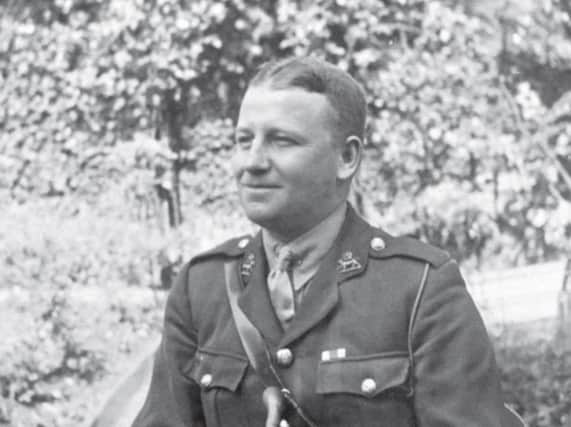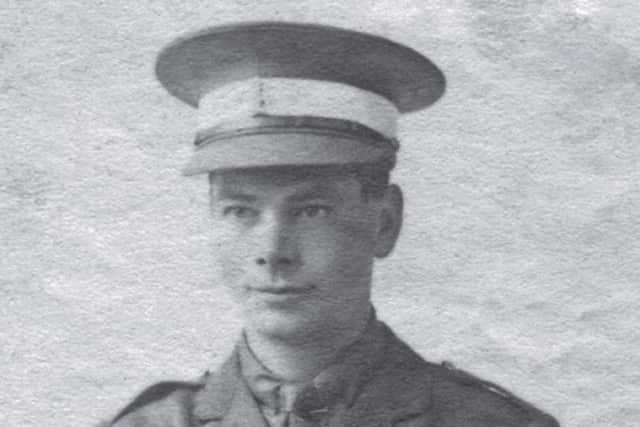'The lads have been through hell' - Yorkshire soldier's words from front line shared in book capturing horrors of First World War trenches


“There they lay in rows just as they had fallen in the battle,” he recalled towards the end of his long life. “But they were no longer recognisable bodies, but skeletons where the white bones were held together by khaki rags and their webbing equipment. Some still had helmets on their skulls, some still had tufts of hair.”
Glenn, from Sheffield, lived to be 101 and was one of the last survivors of the First World War. In later years, he regularly visited France and Belgium for regimental functions, where he was invariably guest of honour.
Advertisement
Hide AdAdvertisement
Hide Ad

“You go into the cemeteries – there are scores of them – and you see the graves of all your friends,” he once recalled. “I was No 928, and both 927 and 929 are in there. I could just as easily have been with them.”
He is one of two soldiers from the York and Lancaster Regiment whose lives and army careers are charted in The First and the Last of the Sheffield City Battalion, a new and impressively researched book, well-timed for this weekend’s Remembrance Sunday and Armistice Day on Monday.
The two came from very different social backgrounds. Where Glenn – who became the battalion’s last survivor – was a clerk in his home city’s Education Offices, Vivian Simpson – the first man to enrol in the battalion in 1914 – was a solicitor. He played for Sheffield Wednesday as a “gentleman amateur”, won the Military Cross in 1917, but was killed the following April.
Advertisement
Hide AdAdvertisement
Hide AdSheffield-based author John Cornwell, once deputy leader of South Yorkshire County Council and a member of the Arts Council, weaves their stories together skilfully, drawing on letters which vividly capture the horror of the trenches and the resilience of the troops.
“The mud is so bad in places that the men can get stuck for four or five hours... the water in places is three feet deep,” Simpson wrote from the front line in November 1916.
“For the last few days the lads have been through hell, and even though we are keeping the Boche busy he is a tough foe and far from being beaten. The country should never forget what Tommy has done for her.”
Advertisement
Hide AdAdvertisement
Hide AdCornwell has also used transcripts of Reg Glenn’s radio interviews, loaned by his granddaughter Diane. “He became the go-to man for talking about the Battle of the Somme,” he says. “He was very much loved, always smiling.”
He often visited schools, almost as a piece of living history, to talk to children studying the First World War. As his son Donald said, it was as if a Pharaoh had walked into the classroom to tell them about Ancient Egypt.
I got to know him in the last years of his life (he died in 1994). On one occasion, he described the “perfectly blue Mediterranean sky with skylarks singing” on that fateful first day of The Somme as British troops loaded with up to five stones of equipment went over the top.
They had been told to treat the advance as a country stroll, but for many it became their own funeral march. Some 21,000 soldiers – many tangled in barbed wire – were mown down by German machine guns on what has been called the blackest, most futile day in British military history.
Advertisement
Hide AdAdvertisement
Hide AdGlenn helped a padre identify some of the bodies eight months later. The pair held a short service, he once told me when I visited him at home. They sang On the Resurrection Morning.
He got up from his chair, opened a bookcase and handed me a book. “This is the hymn book I sang from,” he said. As he recalled in an interview: “The next day it snowed and covered all the bodies.”
The First and the Last of the Sheffield City Battalion, published by Pen & Sword Books, is out now.